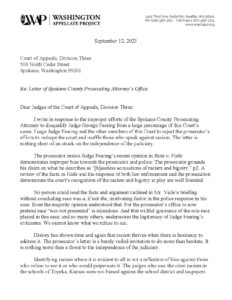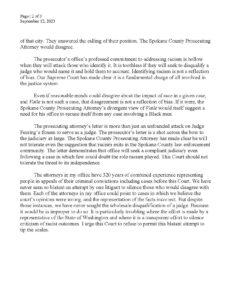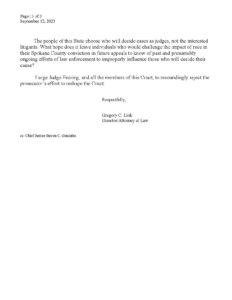September 22, 2022
In
News
By
Nina Arranza-Riley
September 22, 2022 – The Court of Appeals on Monday reversed a drug conviction for Jesus Ibarra-Erives, citing the prosecution’s use of race-based suggestions – specifically the term “Mexican ounce” – in their argument to influence the jury, undermining the presumption of innocence.
Nancy Collins, Mr. Ibarra-Erives’s attorney, stated in an email to HeraldNet that “the prosecution took advantage of despicable stereotypes.” In the State’s closing argument at trial, the prosecutor used the term “Mexican ounce” was used two times. Though the state attempted to argue that it was a relevant, common street term and that the prosecutor acted in good faith and meant no harm, what mattered was whether it could be viewed as a means to appeal to a jury’s potential prejudice. The Court found that “an objective observer who is ‘aware of the history of race and ethnic discrimination in the United States and aware of implicit, institutional, and unconscious biases, in addition to purposeful discrimination’ against Latinx people, could view the prosecutor’s use of the term as an apparently intentional appeal to jurors’ potential bias,” improperly suggesting that Mr. Ibarra-Erives was more likely to have possessed drugs packed to a “Mexican ounce” merely because he speaks Spanish and appears to be Latinx.
For more information, please read the artice “Prosecutor use of term ‘Mexican ounce’ overturns Everett drug conviction” by Jake Goldstein-Street.
Read the opinion here.








